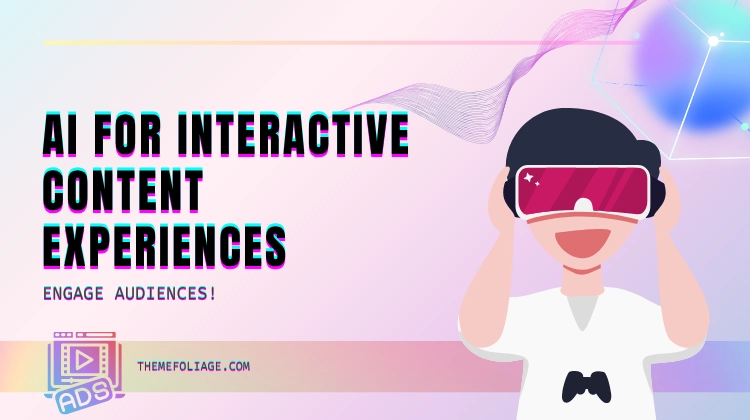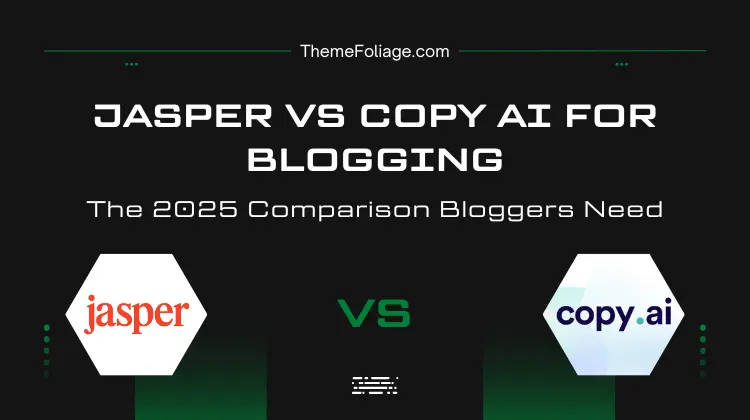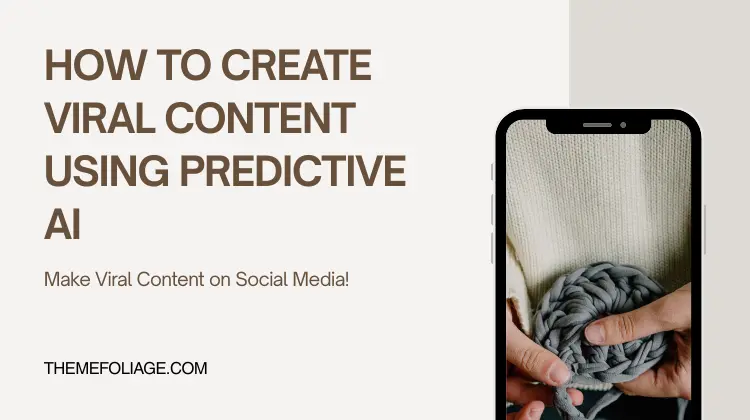Static content is no longer enough. In 2025, audiences expect to participate, not just consume. Interactive content, quizzes, polls, calculators, gamified experiences, has become a cornerstone of digital marketing. And with artificial intelligence, these experiences are now smarter, more personalised and easier to scale.
According to industry research, interactive content generates 2x more engagement than static formats and is 80% more likely to be shared on social media2. With AI, marketers can design, personalise and optimise these experiences in real time.
What Is Interactive Content?
Interactive content refers to digital experiences that require active participation from users rather than passive consumption. Examples include:
- Quizzes and assessments
- Polls and surveys
- Interactive infographics
- Chatbots and conversational content
- Gamified campaigns
- Interactive videos and AR/VR experiences
The goal is to engage users, capture data and create memorable brand interactions.
How AI Enhances Interactive Content
AI is revolutionising interactive content in several ways:
1. Personalised Experiences
AI analyses user behaviour and tailors interactive content in real time. For example, a quiz can adapt its questions based on previous answers, or a product recommendation tool can adjust results based on browsing history.
2. Automated Content Creation
AI platforms like Outgrow, Typeform AI and Interact can generate quizzes, calculators and surveys with minimal input. Marketers simply provide a topic, and AI builds the structure, questions and scoring logic.
3. Predictive Engagement
AI predicts which interactive formats will resonate with specific audience segments. For example, B2B audiences may prefer ROI calculators, while B2C audiences engage more with personality quizzes.
4. Real-Time Optimisation
AI tools run A/B tests automatically, adjusting layouts, CTAs and question flow to maximise completion rates.
5. Data Collection and Insights
Interactive content doubles as a data capture tool. AI analyses responses to segment audiences, predict purchase intent and feed insights into CRM systems.
Examples of AI-Powered Interactive Content
- Quizzes and Assessments: A fitness brand uses AI to generate personalised workout quizzes that recommend products based on user goals.
- ROI Calculators: A SaaS company deploys an AI-built calculator showing potential savings, increasing demo requests by 40%.
- Interactive Videos: AI-powered branching videos allow viewers to choose storylines, creating immersive brand experiences.
- Gamified Campaigns: Retailers use AI to design spin-the-wheel promotions that adapt rewards based on customer loyalty tier.
Recommended AI Tools for Interactive Content (2025)
Recheck the prices for these AI tools on their official website before you make any purchases. These tools prices can change at any time.
| Tool | Function | Pricing (USD) |
|---|---|---|
| Outgrow | Quizzes, calculators, surveys | From $22/month |
| Typeform AI | Conversational forms and surveys | From $25/month |
| Interact | Quiz builder with AI suggestions | From $39/month |
| Ceros | Interactive infographics & design | From $125/month |
| Riddle | Personality quizzes & polls | From $29/month |
| Playbuzz | Interactive storytelling | Custom pricing |
Real-World Example
A travel company used Outgrow to create an AI-powered quiz: “What’s Your Perfect Holiday Destination?” The quiz adapted questions based on user responses and recommended tailored packages. Within two months, the campaign generated 12,000 leads and increased bookings by 27%.
How to Build Your AI Interactive Content Workflow
- Define Your Goal: Decide whether you want leads, engagement, or data insights.
- Choose the Right Format: Use AI insights to select quizzes, calculators, polls or gamified campaigns.
- Generate Content with AI: Use Outgrow or Interact to build the experience quickly.
- Personalise in Real Time: Integrate AI to adapt questions, results and CTAs dynamically.
- Analyse and Optimise: Use AI analytics to track completion rates, shares and conversions.
- Repurpose Across Channels: Distribute interactive content via email, social media and landing pages.
Challenges and Considerations
- Over-Complexity: Keep experiences simple; too many steps reduce completion rates.
- Data Privacy: Be transparent about data collection and comply with GDPR/CCPA.
- Authenticity: Ensure AI-generated experiences align with brand voice.
- Accessibility: Design interactive content that works across devices and is inclusive.
Final Thoughts
AI for interactive content experiences is transforming digital marketing in 2025. By combining personalisation, automation and real-time optimisation, brands can create engaging, data-rich campaigns that drive conversions and loyalty.
Start small with a quiz or poll, test results and scale into calculators, gamified campaigns and interactive videos. The future of content is not just to be read, it’s to be experienced.



